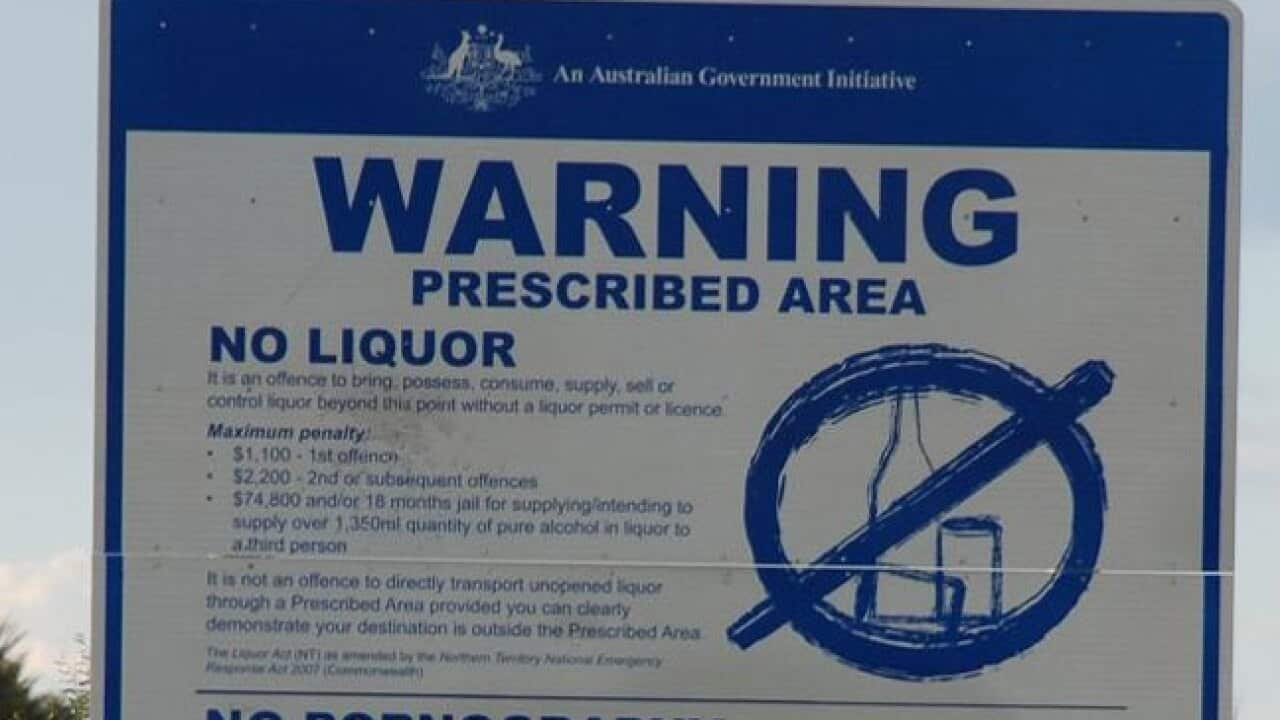Sweeping restrictions on the sale of alcohol in the outback South Australian town of Coober Pedy will take effect from Monday.
The changes are focused on curbing alcohol abuse amongst Aboriginal people, including those from interstate.
Liquor and Gambling Commissioner Paul White is imposing what are possibly the toughest grog laws in the country.
"I've imposed a condition that says if you reside at one of the prescribed lands, which roughly speaking is the APY Lands, or some of the Northern Territory communities close to the South Australian border or Western Australia, then you cannot purchase take away alcohol from the outlets in Coober Pedy," says Mr White.
The pending restrictions will result in a complete ban of take away alcohol for people from dry communities and a refusal of sales to people suspected of travelling to dry communities.
There will also be a complete ban on cask wine. Bottled wine and spirit sales will be limited to one 750ml bottle per person, per day and compulsory photo ID is required for all liquor sales.
"These restrictions have come about at the request of the communities, they weren't imposed, they were seeking my support, if you like, to assist in reducing the inflow of grog into these communities," says Mr White.
Mayor Steve Baines agrees the problem is huge and needs addressing.
"In the last 11 months there have been 18,200 casks of wine sold. Now we've got a population of 1,700 people. That's 500 casks of wine per week, on top of 18,400 bottles," says Mr Baines.
Aboriginal legal advocates and the community think Coober Pedy's been overwhelmed by people escaping grog bans elsewhere.
"The illnesses that people get, the alcohol related violence that flows from alcohol getting into dry communities is really very severe and a very serious problem, and we think that an important impulse to stop this is to get a summit of all communities, get them all together at the same table and talking to government authorities about more effective rules to stop the liquor getting into dry communities because that's what they want," says Aboriginal Legal Rights Movement member Chris Charles.
Local health and detox facilities are braced for a rise in demand including calls for rehab services.
"We don't not have a single rehabilitation service specifically for Aboriginal people in this state, and whether that's all the other health and allied services that we need, we cannot fix the problem simply by these sort of bans; they are part of the solution, they are not the solution," says Greens MP Tammy Franks.
Federal funding allocated 7 years ago for rehabilitation facilities remains unspent.
Commissioner White will review the restrictions in 6 months.

